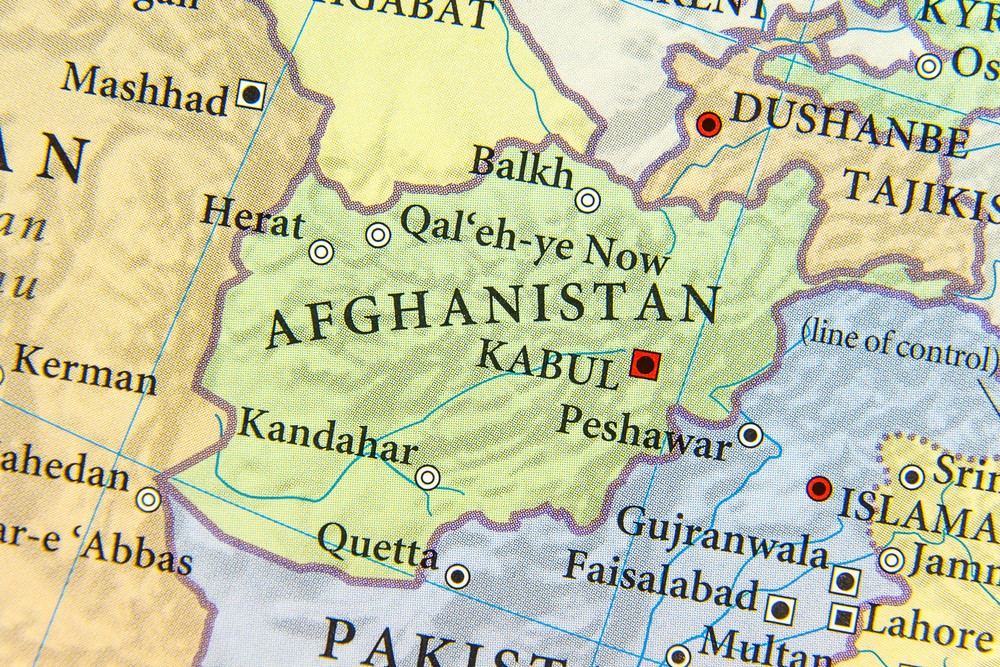Afghanistan: The Graveyard of Liberal Interventionism?

After two decades, the war in Afghanistan (the so-called “graveyard of empires”) has been lost. The sudden defeat of the former Afghan government has sparked an outpouring of recrimination. It is time to take a step back and examine the ethical and political doctrine that was used to justify our nation-building mission in Afghanistan for so many years: liberal interventionism.
Liberal interventionists believe that countries such as the U.S. have an ethical and political duty to spread freedom across the globe — to nation-build, promote and defend democracy, political and civil rights, and international institutions. They argue that diplomatic, economic, and even military intervention can be justified in the name of liberty and humanitarianism.
The doctrine has deep philosophical roots. In his essay “A Few Words on Non- Intervention,” the liberal philosopher John Stuart Mill argued in favor of an ethical duty to intervene against “barbarous” states in order to bring liberty to the people of those states.
More recently, the philosopher Martha Nussbaum has defended some interventionism on humanitarian grounds. Her view is that intervention in a foreign country’s affairs can be justified or even ethically required if it is necessary for providing individuals with “basic capabilities,” such as the capability to live, be in good health, affiliate with others, and to maintain one’s bodily integrity.
Prior to the 2001 NATO invasion of Afghanistan, a liberal interventionist case for war was relatively clear. Under Taliban rule, Afghan citizens faced widespread human rights abuses. For example, women were forbidden from independent travel, from working, and from education over the age of eight. Women were also subject to cruel and arbitrary punishment. In 1996, a woman had the tip of her thumb cut off for the “crime” of wearing nail varnish. Given the appalling human rights abuses of the Taliban, Nussbaum’s conditions for intervention were likely met in Afghanistan.
Of course, it does no good to invade countries only to have them return to tyranny the next week. So intervention can only be justified, on the liberal interventionist view, if it produces lasting progress on human rights, democracy, and liberty. This suggests we have a duty to see our interventions through — to stay in Afghanistan until our humanitarian goals are secured indefinitely.
If there is such an ethical duty, we have violated it in withdrawing our military forces. The liberal-democratic Afghan government was too weak to resist the Taliban. Now Afghan democracy, education, healthcare and civil rights are all likely to be severely weakened or destroyed entirely. Before the recent withdrawal of international troops, Yamina Mishra, Amnesty International’s Asia-Pacific Director, claimed the move “threatens to undermine more than twenty years of progress for women and girls.” The shocking victory of the Taliban appears to be proving her right.
The Taliban have claimed they will abstain from human rights abuses of the past, that they will offer amnesty to those who worked with the former government, and that they will respect freedom of speech, expression, and women’s rights in a manner compatible with Sharia law. This, it has been claimed, is the “Taliban 2.0.” If these promises are kept, then withdrawal may be compatible with liberal interventionist principles. But, 25 years ago, as the Taliban seized Kabul, similar promises were made and quickly broken. To trust the Taliban to maintain the former Afghan government’s respect for human rights is likely wishful thinking. The doctrine of liberal interventionism would appear, then, to condemn Biden’s recent withdrawal.
Most Americans, however, think that withdrawal was the right choice. The U.S. fought in Afghanistan more than five times longer than in World War Two. It is a war that continued to take lives and cost billions each year, while our presence did not seem to be contributing to any progress. President Biden, during the withdrawal announcement, claimed that, “‘Just one more year’ of fighting in Afghanistan is not a solution, but a recipe for fighting there indefinitely.” Biden also appealed to the value of national self-determination, saying that, “It’s up to Afghans to make the decision about the future of their country.”
Despite facing widespread criticism in the media, Biden’s perspective is widely shared; seventy-three percent of voters approved of withdrawal while only twenty-three percent disapproved. Unusually, in this period of hyper-partisanship, a majority of both Republicans and Democrats approved of the withdrawal.
The popularity of the withdrawal might make it seem that America has lost whatever confidence it had in liberal interventionism. This conclusion may, however, be premature. Arguably, Biden’s withdrawal was ethically permissible even according to liberal interventionism.
Mill, the original proponent of liberal interventionism, argued that intervention is only justifiable in nations in which it will work. He writes:
“the answer I should give to the question of the legitimacy of intervention is, as a general rule, No. The reason is, that there can seldom be anything approaching to assurance that intervention, even if successful, would be for the good of the people themselves. The only test possessing any real value, of a people’s having become fit for [liberal intervention] is that they, or a sufficient portion of them to prevail in the contest, are willing to brave labour and danger for their liberation. […] the evil is, that if they have not sufficient love of liberty to be able to wrest it from merely domestic oppressors, the liberty which is bestowed on them by other hands than their own, will have nothing real, nothing permanent. No people ever was and remained free, but because it was determined to be so.”
Biden’s controversial recent speech hit similar notes:
“American troops cannot and should not be fighting in a war and dying in a war that Afghan forces are not willing to fight for themselves. We spent over a trillion dollars. We trained and equipped an Afghan military force of some 300,000 strong, incredibly well-equipped, a force larger in size than the militaries of many of our NATO allies. We gave them every tool they could need. We paid their salaries, provided for the maintenance of their air force. […] We gave them every chance to determine their own future. What we could not provide them was the will to fight for that future.”
Biden’s speech has been widely (and plausibly) interpreted as an ugly attempt to pin the blame for defeat on the Afghan people. But a more generous way to understand Biden is that he is making Mill’s point. If, after twenty years, we have failed to cultivate an Afghan government capable of resisting the Taliban, then there is no reason to think we would ever succeed. On Mill’s account, the blame falls not on the Afghan people, but on America and its allies for intervening while failing to foresee that nation-building would fail. On this reading, the withdrawal was simply a recognition of the painful fact that our nation-building project was never going to succeed, and was therefore never legitimate.




